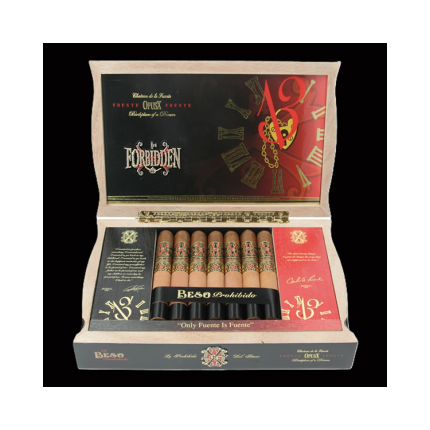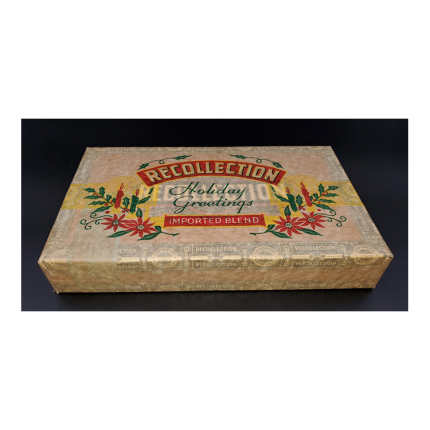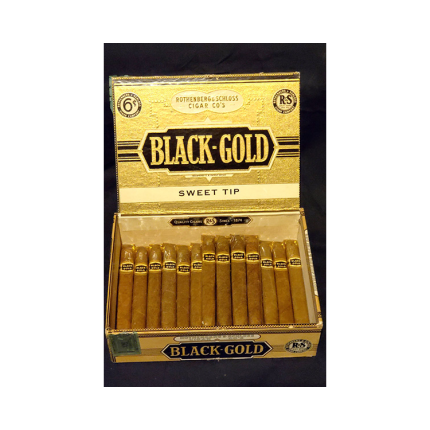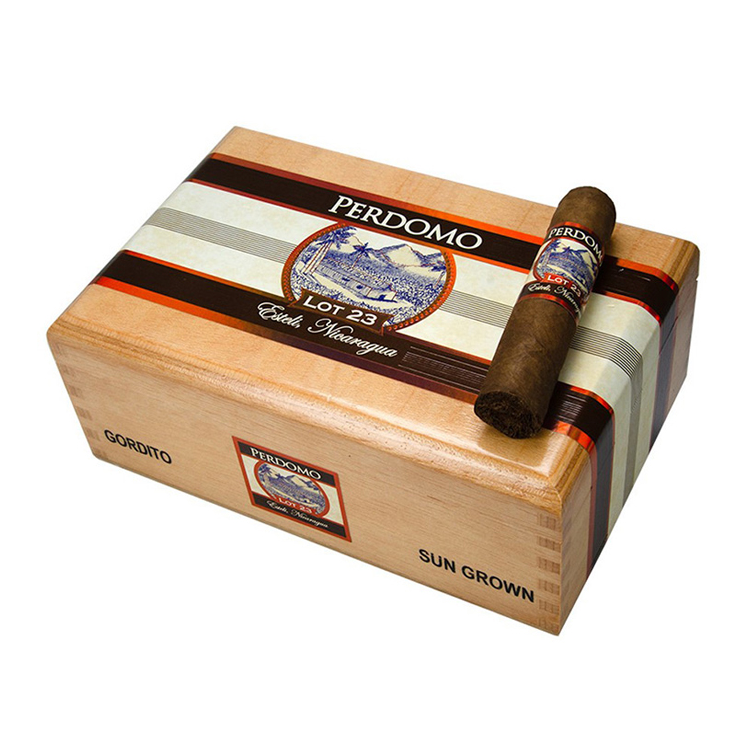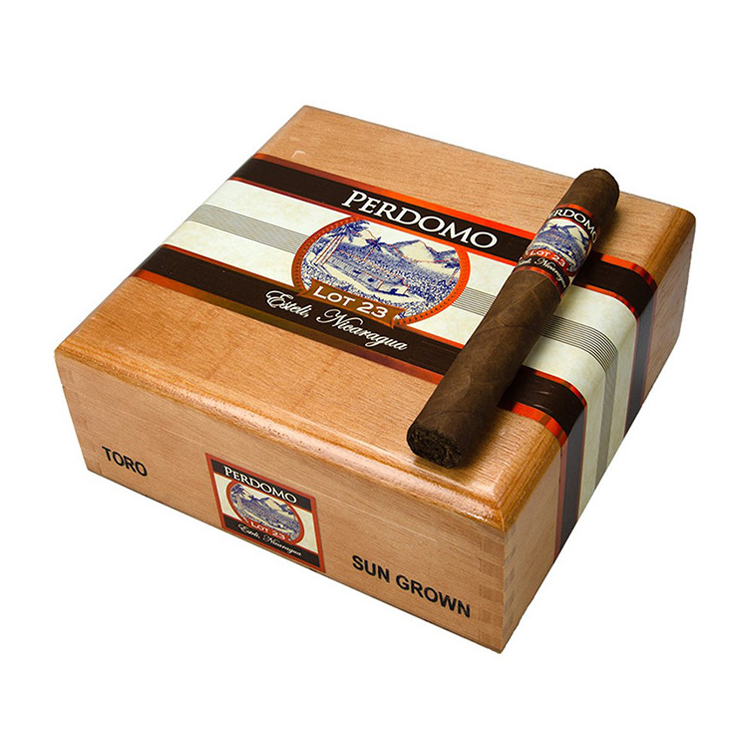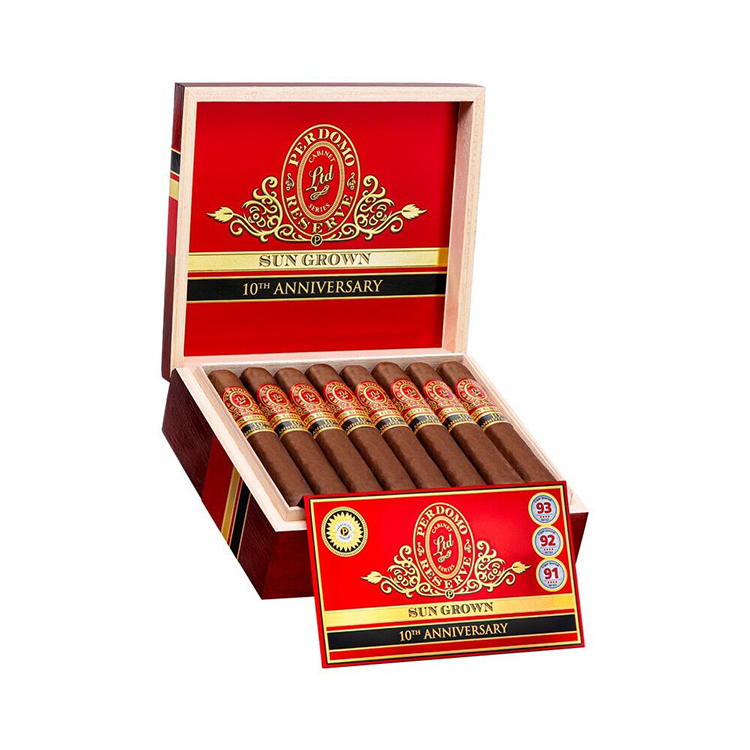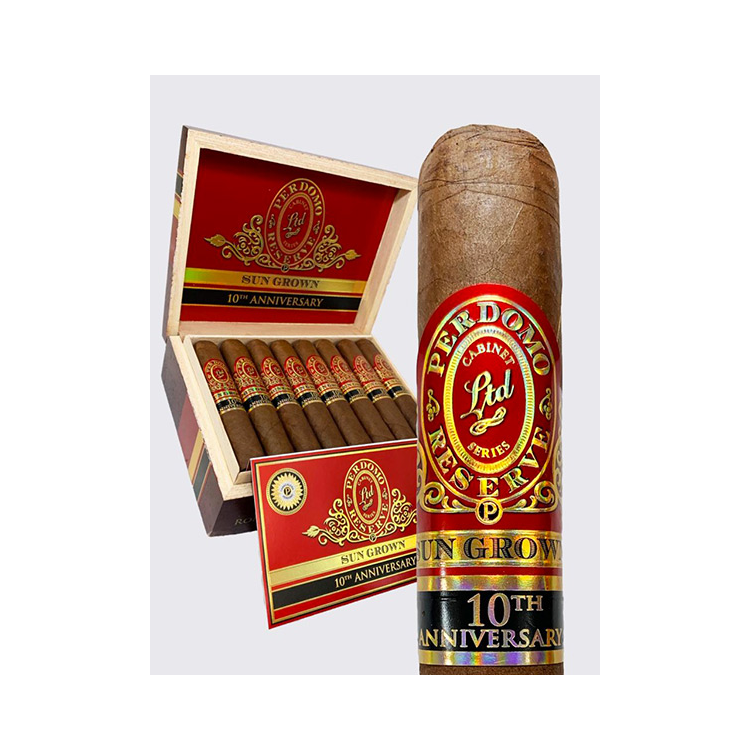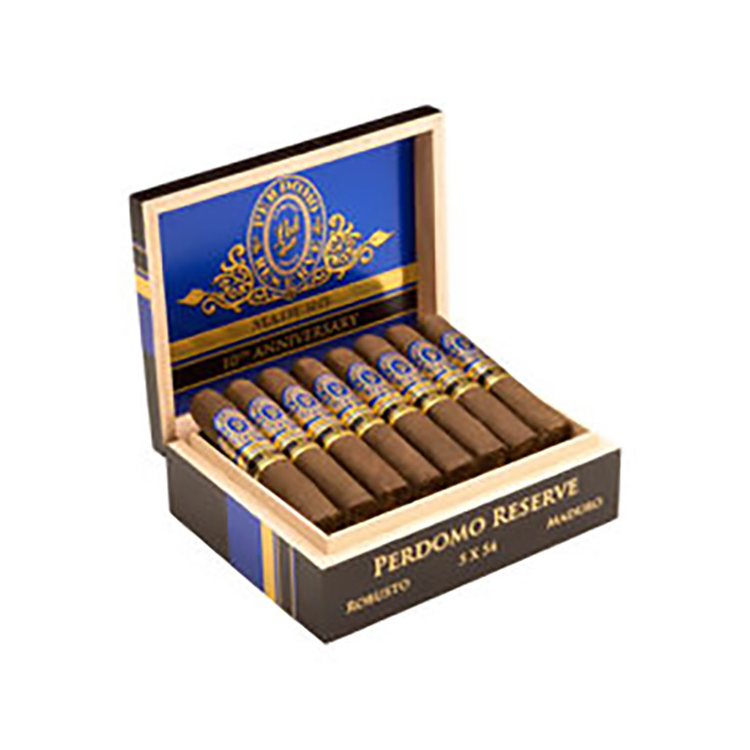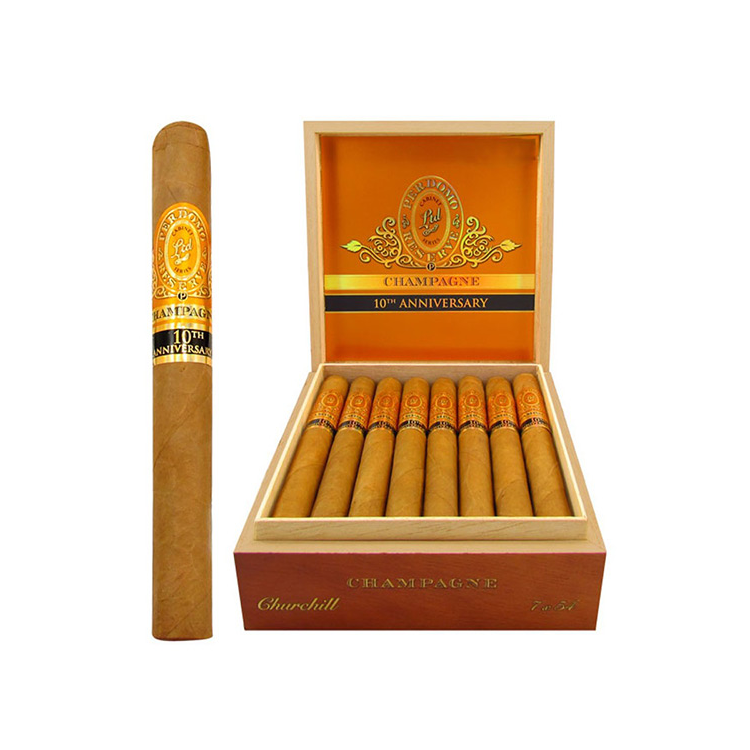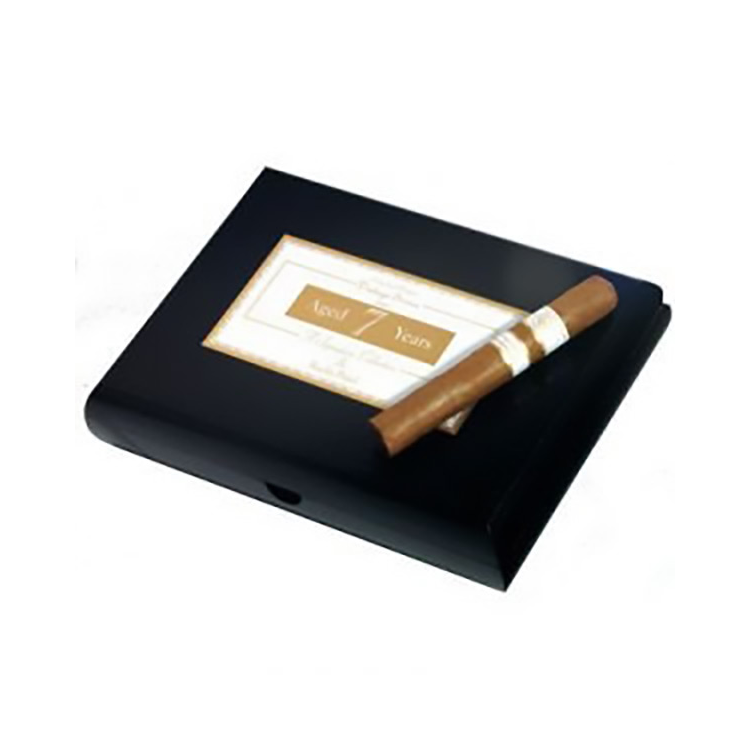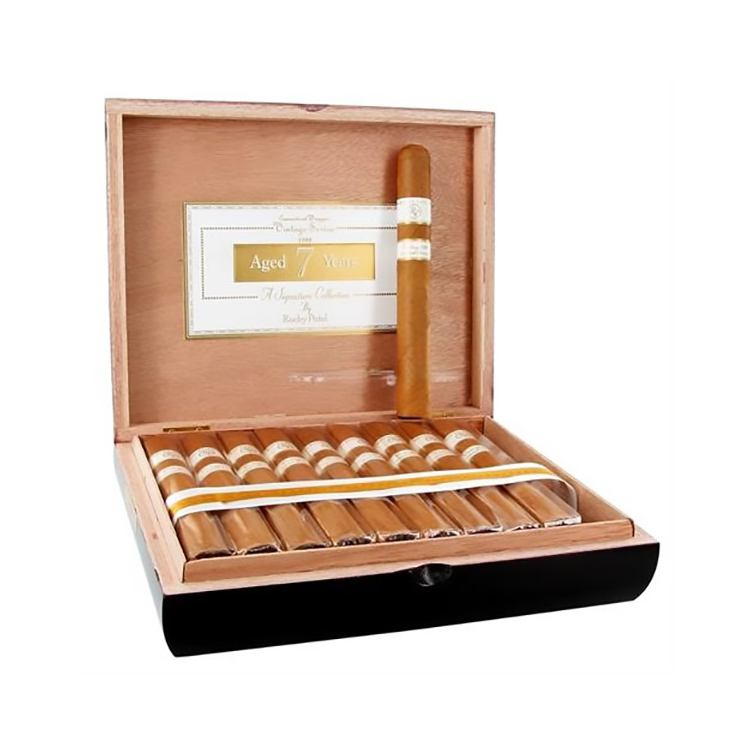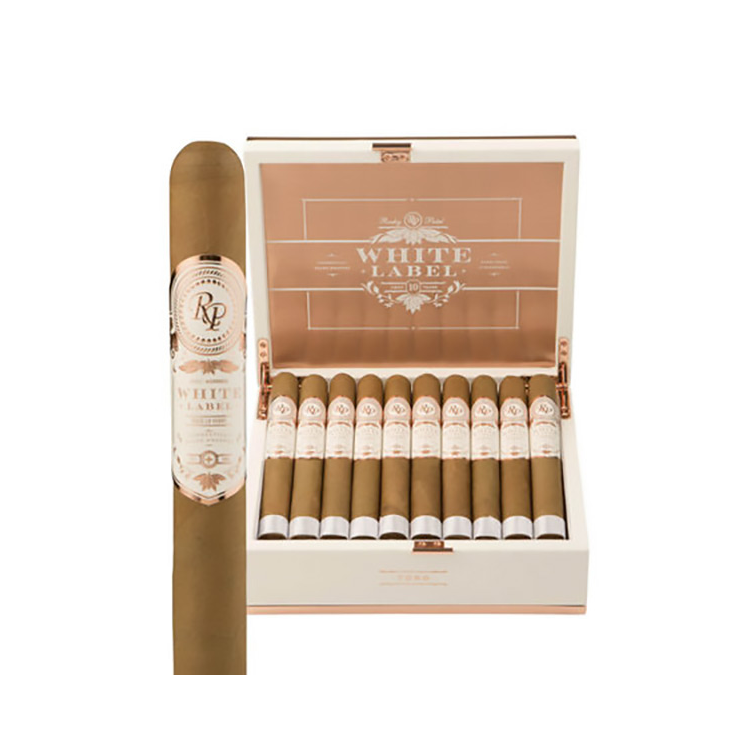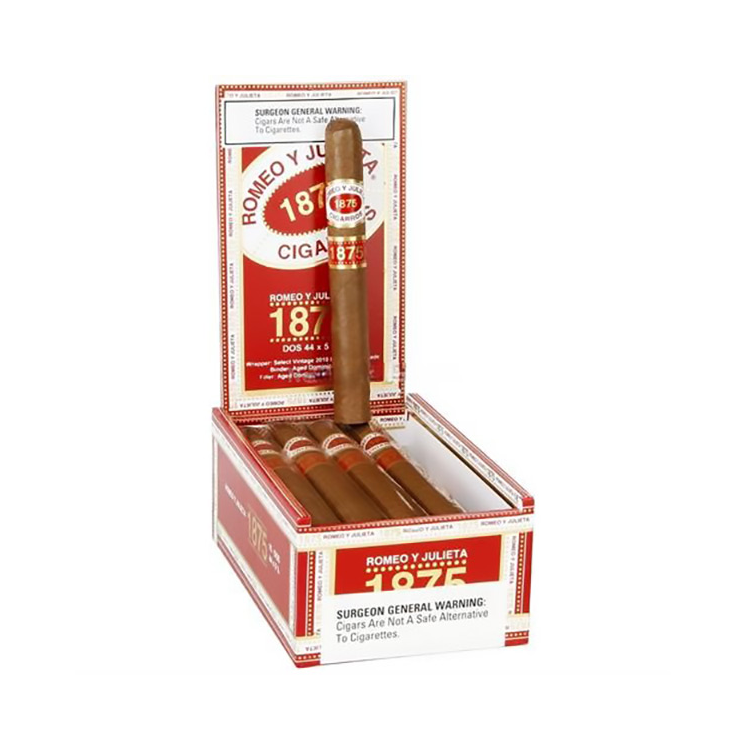Shop
Product categories
- HAND MADE 83
- HAVANA FILLED 22
- HAVANA LONG FILLER 5
- LONG FILLER 40
- Merch 3
- NON-VINTAGE CIGARS 101
- PRE-EMBARGO 7
- RARE/HARD TO FIND 89
- Vintage 128
Filter by price
Top rated products
Showing 106–120 of 233 results
PERDOMO LOT 23 SUN GROWN GORDITO BOX OF 24
$159.00Lot 23 refers to a plot of virgin land discovered by Nick Perdomo and his father in Nicaragua, where they decided to plant a crop of Criollo and Corojo '98 tobacco in the year 2000. The Perdomo Lot 23 Natural Sun Grown has beautiful 5-year aged higher-priming Cuban-seed Nicaraguan Sun Grown wrappers that add a smooth spiciness to the robust 5-year aged Cuban-seed Nicaraguan binder and filler tobaccos. The Perdomo Lot 23 Natural Sun Grown offers a nutty flavor with hints of cedar and spice on the finish.
PERDOMO LOT 23 SUN GROWN TORO BOX OF 24
$169.00Lot 23 refers to a plot of virgin land discovered by Nick Perdomo and his father in Nicaragua, where they decided to plant a crop of Criollo and Corojo '98 tobacco in the year 2000. The Perdomo Lot 23 Natural Sun Grown has beautiful 5-year aged higher-priming Cuban-seed Nicaraguan Sun Grown wrappers that add a smooth spiciness to the robust 5-year aged Cuban-seed Nicaraguan binder and filler tobaccos. The Perdomo Lot 23 Natural Sun Grown offers a nutty flavor with hints of cedar and spice on the finish.
PERDOMO RESERVE 10TH ANNIV SUN GROWN BOX PRESS CHURCHILL BOX OF 25
$199.00These sun-growns are beautiful box-pressed Nicaraguan puros that utilize six-year aged Cuban-seed Nicaraguan wrappers and filler tobaccos hand picked from their prestigious farms in Esteli, Condega, and Jalapa Valley for the blend. The wrappers are a Nicargauan sun-grown leaf that has been bourbon barrel aged 10 months, and produces a medium to full-bodied blend with earthy note flavors combined with hints of spice and sweetness on the finish.
PERDOMO RESERVE 10TH ANNIV SUN GROWN BOX PRESS ROBUSTO BOX OF 25
$215.00The Perdomo Reserve 10th Anniversary Box Pressed Sun Grown Robusto is another amazing cigar that will be a staple in your humidor! The 10th Anniversary Sun Grown features a 6-year old Nicaraguan wrapper that has been bourbon barrel-aged for an additional 10 months. This process creates a beautiful mixture of sweetness and spice on the finish that’s rich and complex.
PERDOMO RESERVE 10TH ANNIVERSARY BOX PRESS MADURO ROBUSTO BOX OF 25
$199.00Perdomo Reserve 10th Anniversary Box Pressed Maduro Robusto cigars are a Nicaraguan puro blend made with Cuban-seed tobaccos harvested from Perdomo’s' fertile fields in Condega, Estelí, and the Jalapa Valley. These rich tobaccos that have been aged for six years, are covered by a stunning six-year-old maduro wrapper that spent 14 months aging in rare vintage bourbon barrels. Beautifully boxed pressed and flawlessly rolled, these handmade premium gems are a line extension to the original 10th Anniversary cigars that were made to honor the brands storied history. Expect a medium to full bodied smoke that’s oozing with complex tasting notes of wood, chocolate, espresso, and a rich tobacco sweetness.
PERDOMO RESERVE CHAMPAGNE 10TH ANNIV CHURCHILL CONNECTICUT BOX OF 25
Perdomo Reserve 10th Anniversary Churchill cigars are one of several celebratory blends that were made to honor Perdomo’s first highly successful 10 years in the business. The cigars showcase a gorgeous 6-years aged sandy-brown Champagne Connecticut wrapper that’s a beauty to behold. Underneath is a tasty Nicaraguan binder and a core of Cuban seed Nicaraguan long filler tobacco. The end result is a creamy smooth mellow- medium bodied cigar offering the connoisseur lush tasting notes of spice, cashews, and leather, punctuated with a vanilla like sweetness that gently lingers on the palate. A decade of producing the top premium cigars in the biz definitely calls for celebration.
PERDOMO RESERVE CHAMPAGNE 10TH ANNIV EPICURE CONNECTICUT BOX OF 25
Several years ago, Perdomo celebrated a decade’s worth of perfection by releasing the bestselling Perdomo Reserve 10th Anniversary Epicure cigars. These luxurious 6 x 54 sticks are comprised of top-quality Cuban-seed Nicaraguan filler and binder tobaccos, exquisitely wrapped in a sleek, regal Champagne Connecticut leaf, which has been gracefully aged for six years. The end result is a creamy smooth mellow to medium bodied cigar offering the connoisseur lush tasting notes of spice, cashews, and leather, punctuated with a vanilla like sweetness that gently lingers on the palate. Perdomo Reserve 10th Anniversary Epicure is an ultra-premium release that makes a luxurious addition to any cigar humidor.
PERDOMO RESERVE CHAMPAGNE 10TH ANNIV ROBUSTO CONNECTICUT BOX OF 25
$210.00Perdomo Reserve 10th Anniversary Robusto cigars celebrate a decade’s worth of perfection from this enormously popular Nicaraguan brand. Comprised of top -quality Cuban-seed, Nicaraguan filler and binder tobaccos, Reserve 10 Year Anniversary Robusto comes exquisitely wrapped in a sleek, regal Champagne Connecticut leaf, which has been deeply aged for six years. You can expect a mellow- to – medium bodied smoke that delivers velvety smooth flavors of white pepper, cocoa, leather , and hints of cinnamon, backed by a rich tobacco sweetness throughout. Elegantly adorned and packaged in stunning Spanish cedar boxes, Perdomo Reserve 10 Year Robusto is an ultra-premium release.
PERDOMO RESERVE CHAMPAGNE 10TH ANNIV SUPER TORO CONNECTICUT BOX OF 25
$239.00Perdomo Reserve 10th Anniversary Super Toro is one of several celebratory premium cigar blends that were made to honor Perdomo’s first highly successful 10 years in the business. These top-shelf cigars are rolled in a popular 6 x 60 format using aged Cuban-seed Nicaraguan filler and binder tobaccos, exquisitely wrapped in a sleek, regal Champagne Connecticut leaf, which has been gracefully aged for six years. The end result is a creamy smooth mellow to medium bodied cigar offering the connoisseur lush tasting notes of spice, cashews, and leather, punctuated with a vanilla like sweetness that gently lingers on the palate. Perdomo Reserve 10th Anniversary Super Toro is a super-delicious artisanal offering that will elevate your prized premium cigar collection.
ROCKY PATEL DECADE TORO SEALED BOX OF 20
$249.00Behold the 95-rated Decade.
Featuring a dark Sumatra wrapper, Decade cigars were created to commemorate Rocky Patel's 10th Anniversary in the cigar industry. It's hard to believe, considering the top-notch cigars he has produced in the past, but the Decade may very well be his finest blend yet. While Rocky's gone on to created a slew of popular, 90+ rated blends, Decade remains one of his best-selling… and once you try one for yourself, you'll quickly realize why.
Rocky Patel Decade is, quite simply, an unforgettable cigar with a smooth, rich, and complex flavor. A testament to how far Rocky has progressed, this cigar is just as good now as it was in its original release, years back. In addition to a stunning '95' rating, Rocky Patel Decade was named one of Cigar Aficionado's Top 25 Cigars of the Year. The reviewers wrote, "Oily and pressed with a great draw. The cigar has a rich and creamy texture with distinct notes of black cherry and a nutty finish. Balanced and elegant."
ROCKY PATEL VINTAGE 7 YEAR ROBUSTO SEALED BOX OF 20
$179.00Capitalizing on his unrivaled success of the 93-rated Vintage '90 and '92 series, Rocky has created the Vintage '99 cigar, a tasty, subtle-bodied morsel coated with a silky Connecticut shade wrapper. The '99 Connecticut uses an exquisite 7-year-old Connecticut leaf to tame his award-winning mixture of 8-year-old Dominican and Nicaraguan long-leaf ligeros. The result is a hearty, slightly spicy cigar with creamy notes of earth and toasted wood.
ROCKY PATEL VINTAGE 7 YEAR TORO SEALED BOX OF 20
$199.00A mild stick, the Rocky Patel Vintage 1999 Toro is handmade in Honduras. A smooth Connecticut shade wrapper that was grown in 1999 is wrapped around the Vintage 1999’s binder from Honduras and fillers from Nicaragua and the Dominican Republic. The Rocky Patel Vintage 1999 creates a silky smoking experience that goes great with coffee.
ROCKY PATEL WHITE LABEL TORO SEALED BOX OF 20
$389.00Released in 2021, there are few if any brands in Rocky Patel’s massive catalog that are as good as Rocky Patel White Label Toro cigars. Created to please smokers who expect nothing but the best, these gems live up to their lofty goal with a blend of tobaccos that have been meticulously aged over 10 years. It starts with long fillers from Nicaragua and Honduras bunched within a thick Nicaraguan binder and a top-shelf Connecticut Shade wrapper, all formed into a popular 6×52 size at TaviCusa in Nicaragua. Each puff elicits a flavorful and complex yet delectably smooth cascade of mellow-medium bodied flavors including baking spices, sweet cream, chocolate, leather, and cedar.
ROMEO Y JULIETA 1875 CHURCHILL SEALED BOX OF 15
$129.001875 Romeo y Julieta offers a familiar smoking experience to the fan-favorite original—upgrading the blend with higher-grade vintage tobaccos. 1875 Churchill showcases the blend in the famed Churchill size for which the brand became famous—as Sir Winston Churchill was known for smoking Romeo cigars this, his preferred vitola.
ROMEO Y JULIETA 1875 DOS SEALED BOX OF 15
$99.00The 1875 By Romeo y Julieta Dos is part of a line that was introduced as a milder version of its bolder counterpart. It features a smooth, vintage 2010 shade-grown Indonesian wrapper that covers a binder and filler made of carefully aged tobacco from the Dominican Republic. This mild corona delivers a complexity of flavors with notes of spice, dark chocolate, hickory, and an earthy finish. The cigars are handmade in Honduras.

